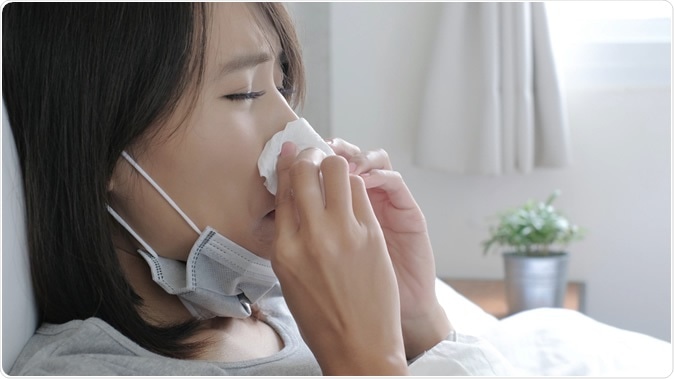Amid fears of a global pandemic, protecting oneself from the coronavirus disease (COVID-19) outbreak is of utmost importance. Many governments are contemplating shutting down schools to prevent the spread of the deadly virus. Now, health officials urge workplaces to protect their employees against the deadly virus that has rippled across 51 countries and territories, infecting over 83,000 people and causing the death of more than 2,800 people, mostly in mainland China.

Image Credit: Aslysun / Shutterstock
The sudden spike of coronavirus cases across continents, with South Korea, Iran, and Italy in the hotspot, has raised issues on whether to shut down schools and workplaces to contain the virus and curb its spread.
Though Japan is the first one to shut down schools until the school year ends, other nations such as the United Kingdom and the United States are contemplating doing the same. Further, health officials urged the cancellations of special events, concerts, and festivities that draw large numbers of people.
Despite not having an order to shut down workplaces outside Hubei province in China yet, the World Health Organization (WHO) issued a new COVID-19 guidance for businesses and employers, which outline simple ways to prevent the spread of the virus, how to get the company ready in case COVID-19 arrives in the community, and how to protect oneself in case employees need to travel.
How the coronavirus spreads
The WHO has guidelines that explain how the virus spreads and simple measures to protect the employees from the disease. When someone who has the disease coughs and sneezes, they release droplets of infected fluid. These droplets fall on surfaces or objects, including telephones, doorknobs, desks, and tables. When someone touches those surfaces, they harbor the virus on their hands. Touching your nose, mouth, and eyes can allow the virus to penetrate and infect the body, particularly the respiratory tract – the cycle goes on.
The COVID-19 symptoms include fever, dry cough, and shortness of breath. Though the virus spreads in a similar way to flu, the World Health Organization (WHO) reported that 90 percent of cases had a fever, and 70 percent had a dry cough. Most infected people experience only mild symptoms and recover, but some may experience more serious illness and may need hospital care.
The older a person is, the risk of serious illness increases, with people over 40 years old, more vulnerable. Also, people with underlying health conditions like heart disease, lung disease, and diabetes are more susceptible to developing a severe illness.
COVID-19 ready
The WHO issued guidelines on how to prevent the spread of COVID-19 in the workplace. The simple measures will not only prevent the spread of the coronavirus but also other infectious diseases, such as flu, colds, and stomach bugs.
Businesses and companies should start doing this even before COVID-19 arrives in the community. They should make sure the workplaces are clean and hygienic, by cleaning and wiping surfaces such as desks and tables, and objects, like keyboards, telephones, and doorknobs regularly with a disinfectant.
Employers should reiterate to everyone in the workplace the importance of regular and thorough handwashing. They should wash their hands with soap and water, but in the absence of these, they can use hand sanitizers. Workplace areas should have a sanitizing hand rub dispensers that are regularly refilled.
Disseminate information across the company by displaying posters on handwashing and COVID-19 precautionary measures, such as respiratory hygiene. Employees should be made aware of respiratory hygiene, wherein they should cover their mouth and nose when sneezing and coughing with a tissue. They should discard the tissue properly in a closed bin.
Companies should provide face masks and paper tissues in the workplace, especially for employees who develop a cough and a runny nose at work.
For business trips, advise employees to consult national travel advice before traveling. Employees who develop fever or cough needs to stay at home, or work at home. The employees should report any symptoms for proper management and reporting.
Employees who recently arrived from travel abroad, especially in coronavirus-stricken countries, should quarantine themselves for 14 days to observe for any symptom.
Working remotely
Remote workers make up about 5 percent (those who work from home) and nearly two-thirds (those who work remotely) of the workforce. But with the coronavirus health crisis, health officials advise employers to consider work-at-home schemes for their employees.